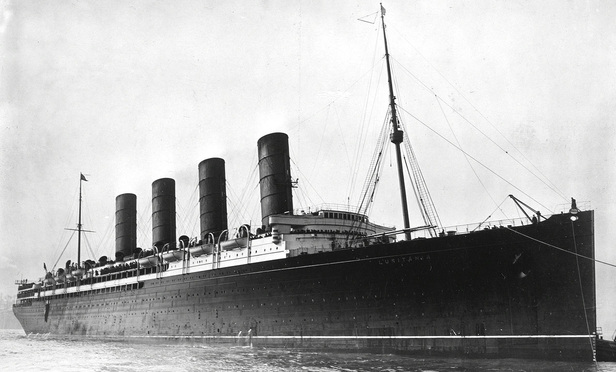One hundred years ago, the R.M.S. Lusitania, a Cunard liner en route from New York to Liverpool was sunk by a German U-Boat. It was attacked off the south coast of Ireland in the afternoon of May 7, 1915; a victim of Germany’s policy of attacking British-bound commerce without warning. Of the 1,962 passengers, 1,201 were killed. One hundred twenty eight were American.1
This did not instantly draw the U.S. into World War I. It remained neutral until April 6, 1917. The actual trigger was the leaked “Zimmerman Telegram”—exposing Germany’s bizarre bid to ally with Mexico and attack Texas, Arizona and New Mexico2—but the sinking loomed large: when seeking a declaration of war, President Woodrow Wilson decried the “reckless and lawless submarine warfare adopted now without disguise by the Imperial German Government,” as well as the “American lives taken” by it.3



